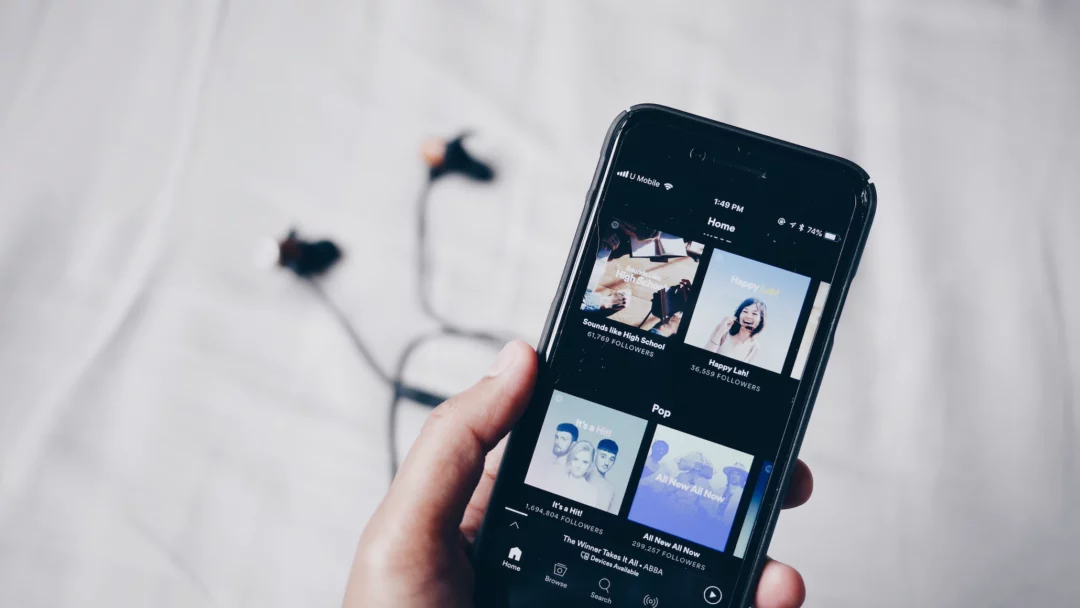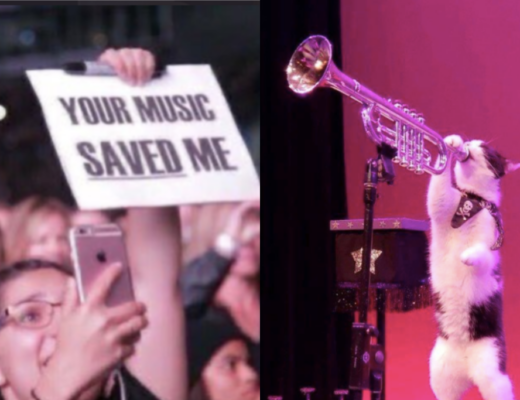Spotify has become the best way for new independent artists to get discovered in the digital age of music. But driving up those streaming stats takes plenty more than just uploading your music to the platform. Even if you have released the next best thing since the Beatles’ White Album, Spotify listeners won’t just happen across it without you putting in the music marketing work first.
Given the recent trends in music consumption and discovery, investing time and money in ensuring that your music thrives on streaming platforms is a far better use of your promotional budget than traditional publicity. Influencers and playlist curators hold plenty of the power that used to belong to label managers, now that streaming is far more popular than purchasing physical music. The balance first tipped in favour of digital music in 2019 when streaming accounted for 56.1% of recorded music revenue globally.
In this article, we will cover some of the best tried and tested methods to increasing your Spotify fanbase, including contacting playlisters, reaching out to bloggers and growing your fanbase on social media before you herd them to your Spotify profile.
How to Find Spotify Listeners to Promote Music To
1. Reach Out to The Editorial Team & Shoot for the Editorial Playlists
As of August 2022, Spotify has over 182 million premium subscribers worldwide, which by any measure is significant, but considering that there are 11 million creators and artists on the platform, standing out and reaching them is no easy feat. Spotify playlists are one of the most effective ways to find new fans.
Spotify’s Editorial team currently run over 3,000 editorial playlists, the competition for these is incredibly tough, but if you succeed and land a placement on one of them, you will easily start clocking up 25,000 streams a day. To pitch to these playlists, you will need a Spotify for Artists profile, which will give you a direct line to the editors to send your pitches.
Pitch all new music three to four weeks in advance and explain in your pitch why your music is worth playlisting, here you can explain to the editors how you will bring users to the platform and impress the editors with details of any press, radio play, or dropping in big names such as collaborating artists and producers.
2. Don’t Dismiss Independent Playlists
If your pitches to the editorial team at Spotify have been successful, don’t overlook the powers of the independent playlists, which are curated by influencers who aren’t on the payroll at Spotify. While some independent playlist curators do it for the love of the music, be aware that some playlist curators charge a fee for a place. To make sure that a placement is worth a chunk of your promotional budget, set aside ample time for research before you embark on self-PR.
There are some great tools out there which help artists submit to the right independent Spotify playlists, including:
Playlist Supply – a search engine that allows independent artists to find the best playlists for their music before revealing the contact information for the curators. Playlist Supply gives artists a full view of the number of playlist subscribers and the number of tracks included on each playlist.
SubmitHub – a music submission site which connects artists and curators. With just one click (submission), you could contact over 900+ playlist curators. The $1 – $3 submission fee is infinitely cheaper than what PR companies charge for a music marketing campaign.
Groover – while SubmitHub works better on a global scale, Groover is better for artists wanting to make an impact in the European market. The platform was set up by an ex-SubmitHub employee, and while it hasn’t grown to the same scale as SubmitHub, yet, it is becoming increasingly popular with artists, playlist curators, record labels and radio stations.
PlaylistPush – this submission service takes the hard work out of distinguishing which playlists you should target with your submission pitches. The campaigns on PlaylistPush last for two weeks; during this time, curators will review your music and place them on Spotify playlists as they see fit. The platform also has an automatic notification system which pings you every time your song has been placed on a playlist.
3. Submit Music to Blogs
As we mentioned earlier, your success in landing a place on official Spotify playlists can boil down to your previous successes and accolades given to you by the press. One of the main reasons independent artists submit to blogs is to gain credibility in the industry, which will open doors further along the road.
Even if new fans won’t be heading to your Spotify profile in droves after a flattering review, what you do with those quotes and soundbites can make the world of difference in your music career. For example, if a blogger lauds your new album as the album of the year, music fans are far more likely to prick up their ears and give you the time of day, as will independent playlist curators.
4. Develop a Fanbase on Social Media First
Building a fanbase from scratch won’t happen overnight, but as a figure in the music industry, I can attest to how easy it is to make connections on platforms such as Facebook. Once I was connected to a few artists and other key industry figures, the friend requests came in droves from music fans, independent artists, promoters, and other music journalists. Regardless of your music genre, there are sure to be niche groups to make your mark in and find potential fans in. It is important to promote your music and Spotify links on your personal pages and your official band and artist pages and stay active instead of just popping up when you have new music to promote.
When you are growing your fanbase, don’t take any of your fans for granted; always take the time to respond to comments; the difference could be between a casual fan and someone who will support your every move! Once you’ve amassed a fanbase, always push your Spotify pre-saves to your followers. This will feed the Spotify algorithm positive data, which proves your music has a place on algorithmic playlists, such as the Discover Weekly playlists.
Article by Amelia Vandergast





No Comments